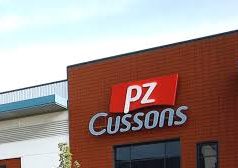The U.S. alcohol industry is sounding the alarm over the potential economic fallout from a new 15 per cent tariff on European Union imports, warning that the measure could slash nearly $2 billion in sales and threaten 25,000 American jobs just ahead of the crucial holiday season.
In a joint letter addressed to former President Donald Trump, a coalition of 57 industry groups—including major producers, retailers, restaurants, and suppliers—urged the U.S. government to reconsider the tariff policy, which they say unfairly targets wine and spirits despite ongoing efforts to foster fair trade.
The coalition, known as Toasts Not Tariffs, represents a broad cross-section of the U.S. alcohol industry, from European distillers like Diageo and Pernod Ricard to American whiskey producers, glass manufacturers, wine importers, and hospitality businesses.
The 15 per cent tariff was part of a recent agreement between Washington and Brussels to resolve a long-standing trade dispute, effectively halving an initially proposed 30 per cent rate. While the deal prevented a wider trade war, it left wine and spirits exposed to duties—a major blow to an industry that had lobbied heavily for exemption.
“The current tariff framework risks undermining the very businesses and workers it claims to protect,” the letter stated. “From bartenders to bottle makers, this policy threatens livelihoods across the supply chain.”
The timing of the tariff could not be worse, the coalition warned. The period from October to December is the most profitable for bars, restaurants, and liquor retailers, accounting for a significant portion of annual revenue.
With costs set to rise, businesses say they will have no choice but to pass price increases onto consumers—potentially dampening demand during peak sales months.
“Tariffs mean higher menu prices,” said a spokesperson for a leading restaurant association. “And when prices go up, customers order less. That’s bad news for profits, staff hours, and seasonal hiring.”
The U.S. alcohol industry relies heavily on transatlantic trade. The United States is the largest export market for European wine and spirit producers, while U.S. bourbon and whiskey enjoy strong demand across Europe.
According to industry data, EU alcohol imports support tens of thousands of American jobs in distribution, marketing, retail, and hospitality. At the same time, American spirit exporters fear retaliation could soon target their products.
In response to the U.S. tariffs, the European Union has already placed select American alcohol products—particularly bourbon and craft spirits—on a retaliation watchlist. However, Brussels has agreed to suspend retaliatory measures for six months in hopes of reaching a negotiated solution.
The industry’s warning comes amid broader challenges. Wine sales in the U.S. have been declining for years, losing ground to spirits and ready-to-drink (RTD) beverages. Beer, once dominant, has also been overtaken by hard liquor in terms of market share.
Economic pressures—including inflation, rising living costs, and shifting consumer preferences toward healthier lifestyles—are further squeezing demand.
“Even without tariffs, the sector is navigating a tough environment,” said a market analyst at a leading beverage consultancy. “Now, adding import costs into the mix could accelerate store closures and job losses.”
The Toasts Not Tariffs coalition is calling for a revised agreement that ensures fair and reciprocal trade for all alcohol sectors.
“We support free and fair trade—not protectionism that harms American workers,” the letter emphasized. “These tariffs don’t just affect foreign producers; they hit Main Street businesses and employees across America.”
With the holiday season fast approaching, the coalition says the window for action is closing fast. “Now is the time to find a smarter solution—one that protects jobs, keeps prices stable, and strengthens international trade partnerships.”
Follow us on Instagram
https://www.instagram.com/businessnewsng?igsh=ZXpweTdjOGF1ZXdu

























